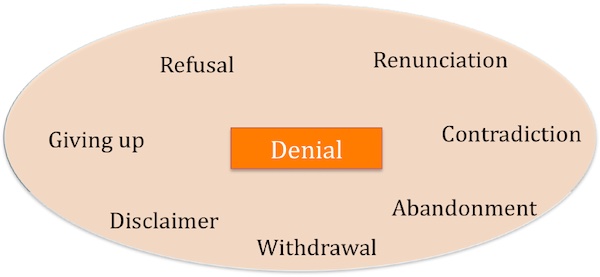A Coaching Power Tool Created by Wei Shi
(Business, Life and Transformational Coach, INDONESIA)
Real life isn’t going to be perfect or go our way, but the recurring acknowledgement of what is working in our lives can help us not only to survive but surmount our difficulties- Sarah Ban Breathnach
Everyday we experience acknowledgement and denial, they appear in the work, in the school, at home and everywhere people meet people. It can happen in our mind, while we are talking and moving with a gesture, a sight or just words. As a child I grew up in China where the humbleness is required. In the school there were only acknowledgement for the kids who did good in exams and brought good marks home. Rarely we got acknowledged from adults because we did well and we endeavored. The results were more important than the process and this way of thinking was influenced and accompanied people’s life.
Definitions
Choice in Perspective
Acknowledgement has many facets, which give us positive massage.

Around Denial the feeling are heavy and disappointing.

Self-Application
There are many reasons why we denial ourselves and other people for the things how they are in our lives. Perhaps we only see what is not working out well and what could be better, but not see what is already done and what is going well. It is easy for us to express denial that in hope we can still doing things better and achieve better. Maybe we are afraid once we speak out the acknowledgement the effort will not be the same if we are criticizing. This inner fear could come from early education from parents and teachers in the old time when people believed in humble-minded people. People who appreciated about their efforts were proud people who were not well seen in the society.
Using the denial way of thinking and doing things to ourselves and other people the negative energy is spread out and is making us unsatisfied and unhappy. Doing denial actions are already showing the close and fearful behavior in one. It is not productive and not open-minded. Through the denial we shut down our courage for more adventure and stop us moving forward.
There are some signs that recognize the denial:
The denial action is easy to exercise but causes deep anger and helpless feeling in one. Here is an example where we can have a look what it is. Sophie is working hard on her oral exam and she did prepared a lot different cases and questions that could be asked in the exam. The night before exam, Sophie was still doing exercises and felt very exited and nervous and could not sleep well whole night. Next morning she felt really tired and more nervous and she trunk a lot of coffee to keep her awake. In the exam she could answer most of questions but at the end she was stuck somewhere. If Sophie was playing the denial game, the following cases could happen:
The all three cases described above made Sophie felt bad and stuck. The denial could not help her to move forward. The result of the oral exam could not change even she blame her self and others.
If Sophie is changing her mindset and acknowledge herself for what she already did and achieved she will see how hard she worked on the exam and how well she answered most of the questions. This will give her a lot of positive energy to face the next exam.
Things happened in our lived could not be turn around. What we can do is to live in the presence and to think what we learned from past and what we can do better in future. To acknowledge ourselves for what we did well and what we will do well give us a feeling of trust and appreciation. The barriers will be lower and we are encouraged to further actions.
Coaching Application
There are many ways to shift the denial way of thinking to the acknowledgment. We as coach should see what clients could acknowledge.
Reflection
- What are the things in your life which you are denial yourself and others?
- How could these things look like if you shift the perspective from denial to the acknowledgment?
- What are things that you can acknowledge in your life?
- Why do we need acknowledgement and not denial to help us moving forward?
- What are the questions you can ask your client to switch perspective from denial to acknowledgement?